Banks vs. Brokers: Where Should You Trade?
Banks or brokers? Compare costs, flexibility, and tools to discover where you should trade Forex, stocks, or crypto. Choose smarter with expert guidance from WhereToTrade.
 Writen by:
Arslan Ali But
20 January 2025
8 minutes read
Writen by:
Arslan Ali But
20 January 2025
8 minutes read

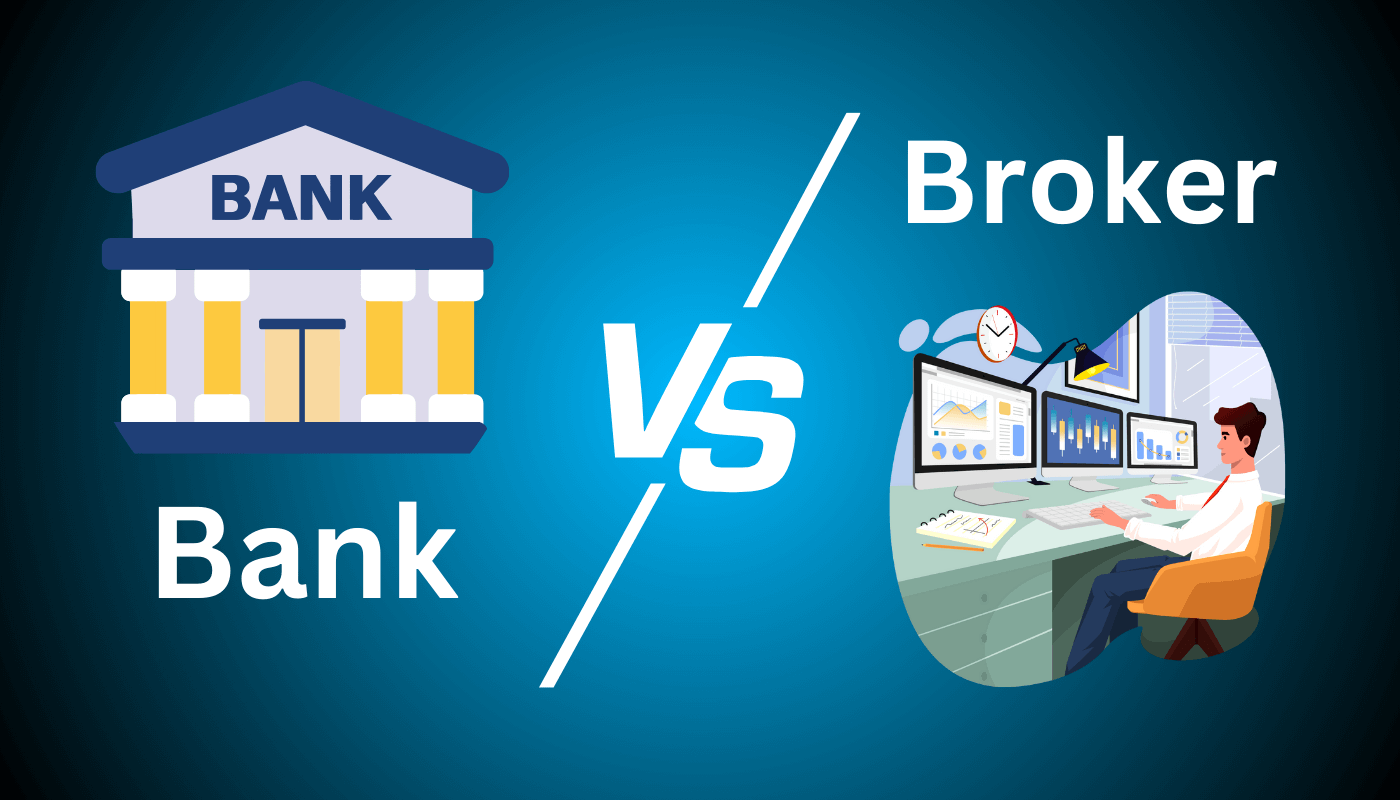
Trading Forex, stocks, and other financial instruments opens doors to a world of opportunities, whether you're speculating on currency pairs or building a diversified investment portfolio. With daily Forex transactions exceeding $7.5 trillion and global stock markets valued in the hundreds of trillions, the potential is immense.
When starting your trading journey, a crucial decision is choosing between trading through banks or brokers. Banks, known for their stability and deep resources, cater to institutional and high-net-worth clients. Brokers, however, are designed to meet the needs of retail and active traders by offering flexibility, lower costs, and advanced tools.
Each option comes with unique advantages and trade-offs. This guide dives into the critical differences between banks and brokers, helping you decide which option aligns better with your trading goals, risk tolerance, and style. The right choice can be the foundation of your trading success.
The Role of Banks in Trading
Banks play a pivotal role in the financial ecosystem, primarily serving institutional investors and high-net-worth individuals with their extensive resources and expertise.
Services Provided by Banks:
- Institutional Trading: Banks handle multi-million or billion-dollar trades for corporations, hedge funds, and governments. For instance, in mergers and acquisitions, banks may charge fees ranging from 0.3% for transactions over $10 billion to 0.9% for deals under $5 billion.
- Forex Trading: Banks act as major liquidity providers in the $7.5 trillion-a-day Forex market, facilitating trades for institutional clients through centralized systems.
- Stock Investments: Banks offer traditional stock services, including long-term portfolio management and financial advisory tailored to institutional strategies.
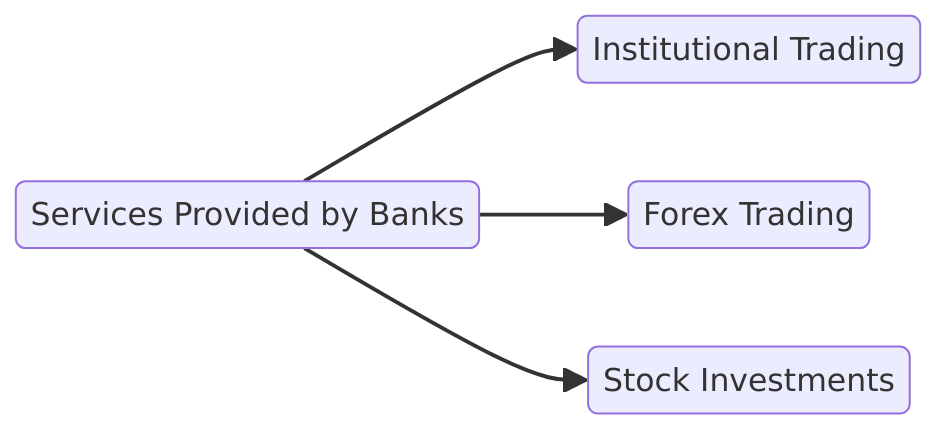
Advantages of Banks:
- Security and Trust: Banks are heavily regulated by authorities like the SEC or FCA and often boast decades of reliability, making them a safe option for investors.
- Institutional Tools: Clients gain access to exclusive research, advanced analytics, and data unavailable to retail traders.
Limitations of Banks:
- Higher Costs: Banks charge premium fees for their services. For example, a bank might charge $50,000 or more for handling large financial transactions, plus higher spreads in Forex trading.
- Limited Flexibility: Banks are less accommodating for retail traders, offering lower leverage (e.g., 1:10 vs. 1:30 offered by brokers) and slower execution speeds.
While banks offer security and extensive resources, their services are often more suited to institutional players than to retail traders looking for cost-effective and flexible trading solutions.
The Role of Brokers in Trading
Brokers have revolutionized the trading landscape by providing retail and institutional traders with flexible and cost-effective access to global financial markets. Unlike banks, brokers cater to traders of all levels, from beginners to professionals, enabling them to explore Forex, CFDs, cryptocurrencies, and stocks with ease.

Services Provided by Brokers
- Market Access: Brokers connect traders to global markets, offering access to Forex pairs, stock CFDs, and cryptocurrencies like Bitcoin and Ethereum.
- Leveraged Trading: Brokers allow traders to control larger positions with smaller capital. For example, brokers like AVATrade offer leverage of up to 1:400 on Forex, amplifying both profits and risks.
Advantages of Brokers
- Lower Costs: Brokers typically offer tighter spreads, such as 1 pip on EUR/USD, making trading more affordable.
- Flexible Accounts: Options like low minimum deposits (starting as low as $50) and high leverage make brokers accessible for retail traders.
- Advanced Tools: Brokers provide charting platforms, copy trading features, and economic calendars to enhance trading decisions.
Limitations of Brokers
- Regulation Concerns: Choosing unregulated brokers can expose traders to risks, making regulatory compliance crucial.
- Leverage Risks: While leverage can amplify gains, it also increases exposure to significant losses, especially in volatile markets.
At WhereToTrade, we help traders find reliable brokers that offer competitive pricing, advanced tools, and secure trading environments tailored to individual needs.

Comparing Costs: Banks vs. Brokers
When it comes to costs, brokers often outshine banks with their competitive pricing and transparency.
Fees and Spreads:
Banks charge higher fees, with spreads on Forex pairs like EUR/USD ranging from 3-5 pips. Brokers, however, offer tighter spreads, often as low as 1 pip, making them more cost-effective for active traders.
Hidden Costs:
Banks may impose account maintenance fees ($10-$50/month) or wire transfer charges up to $30. Brokers might charge inactivity fees or overnight swap rates, but these costs are typically smaller and more transparent.
For retail traders, brokers provide a budget-friendly alternative, while banks cater to those willing to pay a premium for institutional-grade services.

Accessibility and User Experience
When it comes to accessibility and user experience, brokers generally offer a more trader-friendly approach than banks.
Bank Platforms
- Target Audience: Primarily designed for institutional and long-term investors.
- Features: Often limited for active or day traders, focusing on basic trading services with less emphasis on real-time charts or custom indicators.
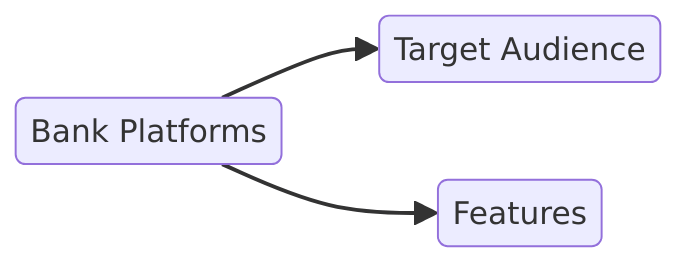
Broker Platforms
- User-Friendly Interfaces: Tailored for beginners and active traders, offering intuitive designs that simplify the trading process.
-
Advanced Tools:
- MetaTrader 4/5 (MT4/MT5): Provide comprehensive charting, automated trading, and technical indicators.
- Risk Management Features: Include stop-loss, take-profit orders, and margin calculators to help manage trading risks.
- Mobile Apps: Offer real-time updates and the flexibility to trade on the go, ensuring traders can respond to market movements promptly.
- Additional Features: Many brokers provide educational resources, demo accounts, and customer support to assist traders in making informed decisions.
For traders who value accessibility and advanced tools, brokers deliver a more versatile and engaging experience compared to banks.
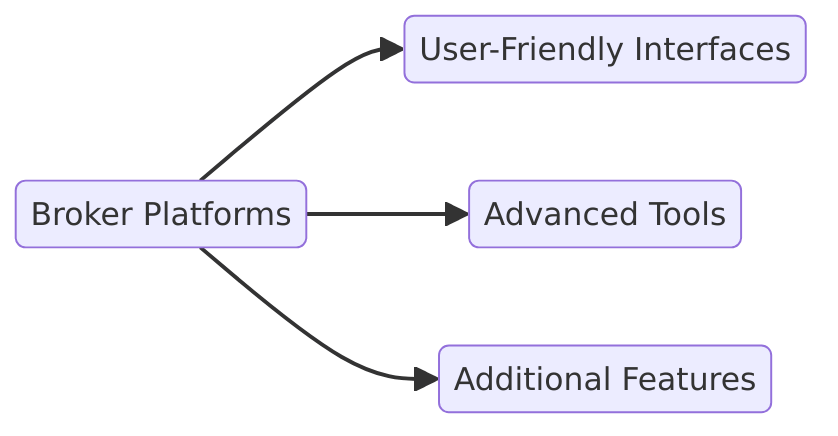
Regulation and Security
When trading, understanding the regulatory landscape is crucial for safeguarding your investments.
Banks:
- Regulation: Banks are strictly regulated by central banks and financial authorities, such as the Financial Conduct Authority (FCA) in the UK and the Securities and Exchange Commission (SEC) in the US.
- Fund Protection: Client funds in banks are typically insured and protected, ensuring security even in cases of bank failure.
Brokers:
-
Regulatory Oversight: Broker regulation varies; it's essential to
choose brokers regulated by reputable authorities like:
- FCA (UK): Ensures financial markets are fair and transparent.
- ASIC (Australia): Known for stringent guidelines and close monitoring.
- CySEC (Cyprus): Regulates financial services firms to ensure investor protection.
Importance of Regulation: Choosing a regulated broker ensures adherence to industry standards, providing transparency, security, and protection for your funds.
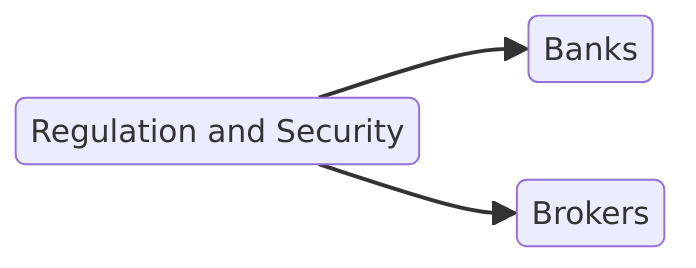
Suitability for Different Types of Traders
Choosing between banks and brokers depends on your trading style, goals, and experience level.
- Institutional and Long-Term Investors: Banks are better suited for those handling significant capital. For example, a corporation executing a $500 million foreign exchange hedge would typically rely on a bank for its stability, regulatory compliance, and liquidity.
- Retail and Active Traders: Brokers cater to individuals with features like leverage (up to 1:400 on Forex trades through AVATrade) and low costs (spreads as tight as 1 pip on EUR/USD). Flexible platforms like eToro offer tools for day trading and short-term strategies.
- Beginner Traders: Brokers are ideal for new traders, offering demo accounts and educational resources.
By evaluating your needs, you can determine whether the tailored services of brokers or the stability of banks best aligns with your trading objectives.

Key Considerations for Choosing the Right Option
Choosing between banks and brokers depends on several factors tailored to your trading needs:
- Trading Goals: For long-term investments, banks offer stability and tailored services. For short-term trading, brokers provide flexible platforms and tools.
- Cost Sensitivity: Banks often have higher fees, while brokers like AVATrade offer competitive spreads as low as 1 pip on Forex pairs.
- Risk Tolerance and Leverage: Brokers cater to traders seeking leverage (e.g., 1:30 for retail accounts), while banks are more conservative with lower leverage ratios.
- Regulatory Compliance: Look for brokers regulated by FCA, ASIC, or CySEC to ensure fund safety. Banks are typically regulated and insured, making them a secure choice.
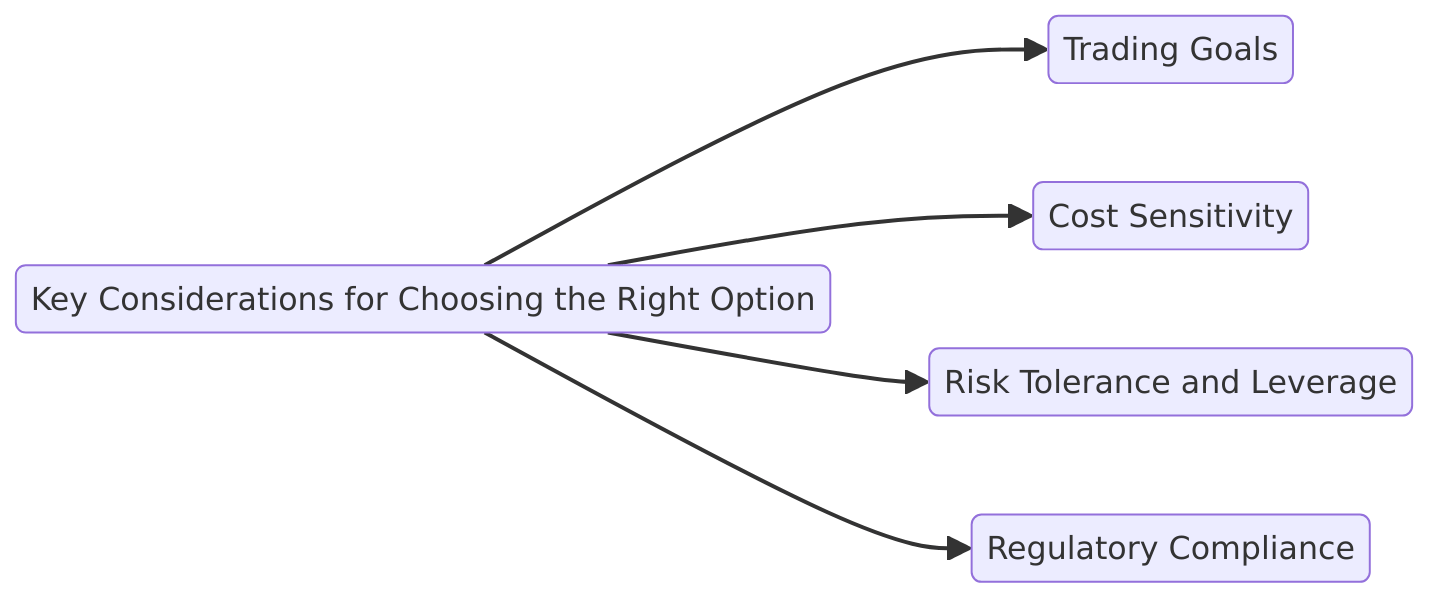
Conclusion
Choosing between banks and brokers depends on your trading needs and style. Banks offer stability, security, and access to institutional-grade tools, making them ideal for long-term investors. Brokers, on the other hand, provide cost-effective solutions, greater flexibility, and advanced platforms tailored to retail and active traders.
Aligning your choice with your trading goals—whether short-term or long-term—ensures a smoother trading experience.
At WhereToTrade, we simplify this decision by helping you find the platform that best suits your needs. Explore our expert recommendations today and take the first step toward confident and successful trading!
Table of contents
1. The Role of Banks in Trading 2. The Role of Brokers in Trading 3. Comparing Costs: Banks vs. Brokers 4. Accessibility and User Experience 5. Regulation and Security 6. Suitability for Different Types of Traders 7. Conclusion






